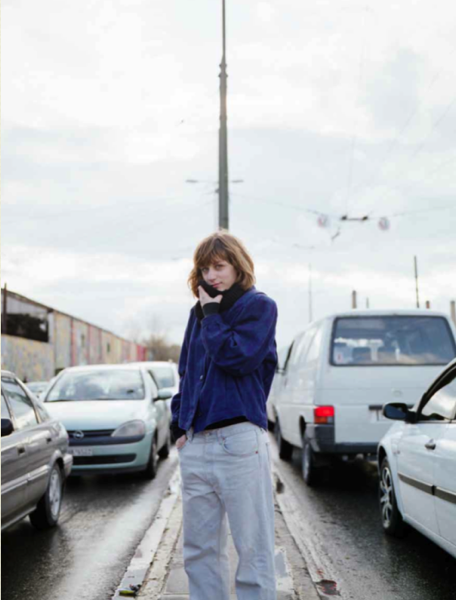
When her first big film role is to impersonate a boy, who grew up as a girl in a convent at the time of the turkish rule, she has to be either too brave, too talented or just mad. The 28-year-old young actress, who stars in the revealing “Black Field” by the newcomer director Vardis Marinakis, invites you to discover that she is all the above and more.
What have you learnt so far, from your experience in the world of acting?
I have only been in the scene for a short time. However within this short time, I have experienced both great joy and great disillusionment. Acting is about extremes. I am slowly learning that in order to endure, you have
got to be hard but without losing your sensitivity; and that is the challenge. To demand while knowing what you deserve. To function even if the surrounding seems to malfunction. To be humble and have faith.
What was your first thought when you read the script for ‘Black Field’?
When I first read the script I said that its creator is certainly a man of courage and risk. Something rather charming in itself.
How difficult was it to impersonate a boy? Did you fear the daring scenes or a reaction by the public towards an extreme love story between a boy who has grown up as a nun and a Janissary? Impersonating a boy, as a thought, was something against my nature as I was born a girl. And that was why it was highly attractive and when something attracts me the last thing that bothers me is how difficult it is. Afterwards, more was left on the instinct which is of a neutral gender to me, and so it proved easy.
Do you like to provoke?
Provoking as a notion, is something I quite like. Anything that causes contradiction makes you feel alive, I think.
How important was the historical basis of the film to you? Did you try to emulate the ‘spirit’ of the time or was it seen as a timeless era, something that could happen at any time?
It didn’t bother me or my colleagues. The script was written in modern greek anyway other than the ecclesiastical verses. The only thing we took care of, was for the speech to have a certain clarity and avoid mumbling which is a modern habit. Apart from this it would have been silly to try and emulate the ‘spirit’ of the time since it was 350 years ago. There have been many generations that have influenced the current culture and so I wouldn’t be able to even have a short sniff of it. My imagination was alert, but that was it. We focused on the story which as you say, could have happened any time. The ‘spirit’ is recreated by default; the set, the photography and aspects that have nothing to do with acting.
What are your thoughts on the future of Greek cinema, now that everyone is talking about the ‘spring’ of Greek cinema?
I can’t talk about the future, I can only comment on the present in relation to the movies that have been coming out the past few years, which is really exciting. I can only hope for the Greek public to appreciate it and to realise their true contribution to the domestic film progress by the simplest act of going to see a Greek production even if they know nothing about it.
Ιnterview: Manolis Kranakis – Photo: Νikolas Ventourakis



